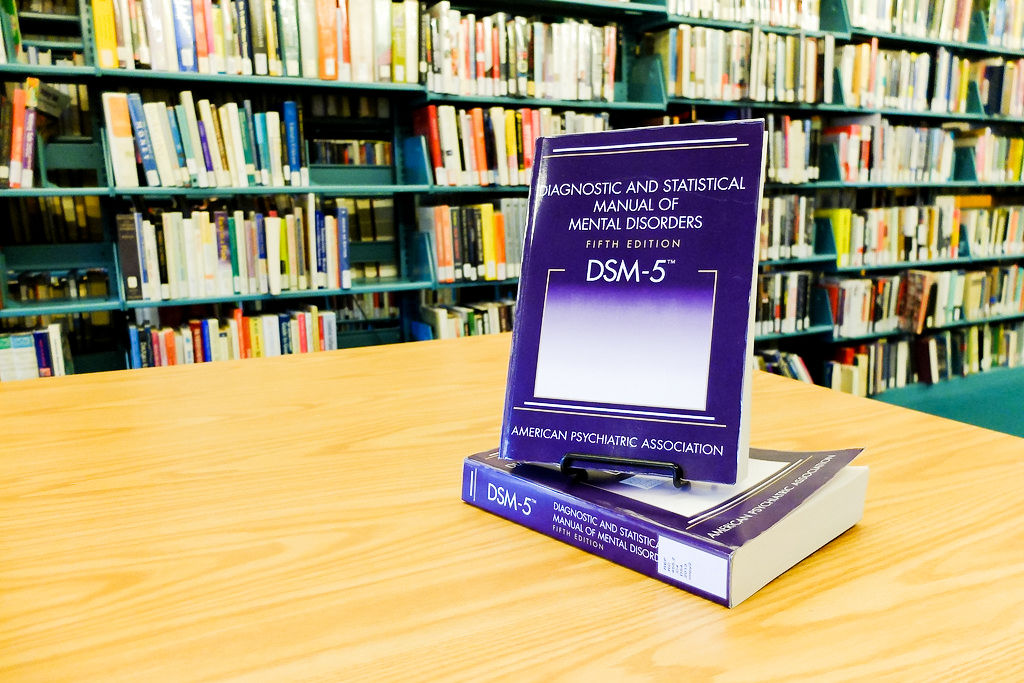Do you spend hours a day playing video games at home instead of seeing friends? You may have Internet Gaming Disorder.
Perhaps your friends would describe you as being over-dramatic, or maybe you find yourself often wanting to be the center of attention. You may be afflicted by Histrionic Personality Disorder.
Lastly, has the death of a loved one ever caused you extreme grief for an extended period of time? Your care-provider can now diagnose you with Major Depressive Disorder and prescribe the necessary antidepressant medications accordingly.
If any of these conclusions sounded a bit ambiguous or extreme to you, many experts in the field of psychiatry would tend to agree. However, the descriptions above can all be professionally validated by the contents of the newest edition of the DSM. The fifth edition of the Diagnostic and Statistical Manual of Mental Disorders, or DSM-5, is the handbook created by the American Psychiatric Association (APA) that all mental healthcare professionals in the United States use to diagnose and assess treatment for patients.
Historically, the DSM’s revision and reconstruction has been a topic of debate among scientists and social workers alike. Some argue that the most recent editions have increasingly broadened the scope of what is classified as “mental illness” in an endemic phenomena they call the “medicalization of normality.” These critics of the DSM-5 feel that the inclusion of vague diagnostic criteria and exclusion of exceptions to said criteria could be dangerously misinterpreted in the hands of non-specialist primary care providers from which roughly 58 percent of psychotropic drugs prescriptions are given.
The next question is: Why? What motives would the team of experts assigned to revise the DSM possibly have for broadening the definitions of mental illness? Some suggest this trend reflects the corporate interests of large pharmaceutical companies, and these claims aren’t totally unfounded. Recently, the American Psychiatric Association reported that over half of the most recent DSM panel members disclosed one or more financial associations with pharmaceutical industries. Additionally, 100 percent of members within the “Mood Disorders” and “Schizophrenia and Other Psychotic Disorders” sectors had financial ties with drug companies. It is important to note that these are fields in which medications are the first line of treatment for afflicted patients.
Conversely, Dr. Frances Allen, a professor emeritus of psychology at Duke University and former DSM-IV panel member, suggests, “There’s is an intellectual, not financial, conflict of interest that results from the natural tendency of highly specialized experts to over value their pet ideas, to want to expand their own areas of research interest.” This leads to the rise of what he refers to as “fad diagnosis,” or underdeveloped new additions to the DSM that have been said to cause rampant misdiagnosis of neurotypical patients, namely children.
However, how exactly do we define “neurotypical”? In order to define what is mental illness, there must be a clear idea of mental health. But how do we define mental health in a world of smartphones, apocalyptic ideation and virtual reality? This is the ever-evolving labyrinth that a single panel of experts assigned by the APA must come together to navigate. The very nature of the DSM is meant to be provisional and abstract, making it subject to change and criticism. However, the contents of the DSM hold very real, tangible consequences. In many ways, it shapes the entire direction of psychiatry by influencing stigma and guiding legal judgments.
With so much at stake then, why wouldn’t the APA do more to address the concerns of experts outside of its panel? Though meager efforts have been made in democratizing the revision process of the DSM in the past, the DSM-5 skipped the field testing stage and, in effect, missed an opportunity for much needed quality assessment. Additionally, more should be done to ensure that mental healthcare professionals are trained to properly understand the newest content of the DSM-5 and the implications of the diagnostic criteria. Lastly, the APA needs to further expand its disclosure process for the financial ties of panel members, as simply stating ties exist does little to decrease their presence.
The Philosophical Nightmare of the DSM-5
October 14, 2019
Photo by Creative Commons
DSM-5 is the 5th Edition of the Diagnostic and Statistical Manual of Mental Health Disorders, which is used to diagnose and assess treatment for patients.
0
Donate to The Battalion
Your donation will support the student journalists of Texas A&M University - College Station. Your contribution will allow us to purchase equipment and cover our annual website hosting costs.









